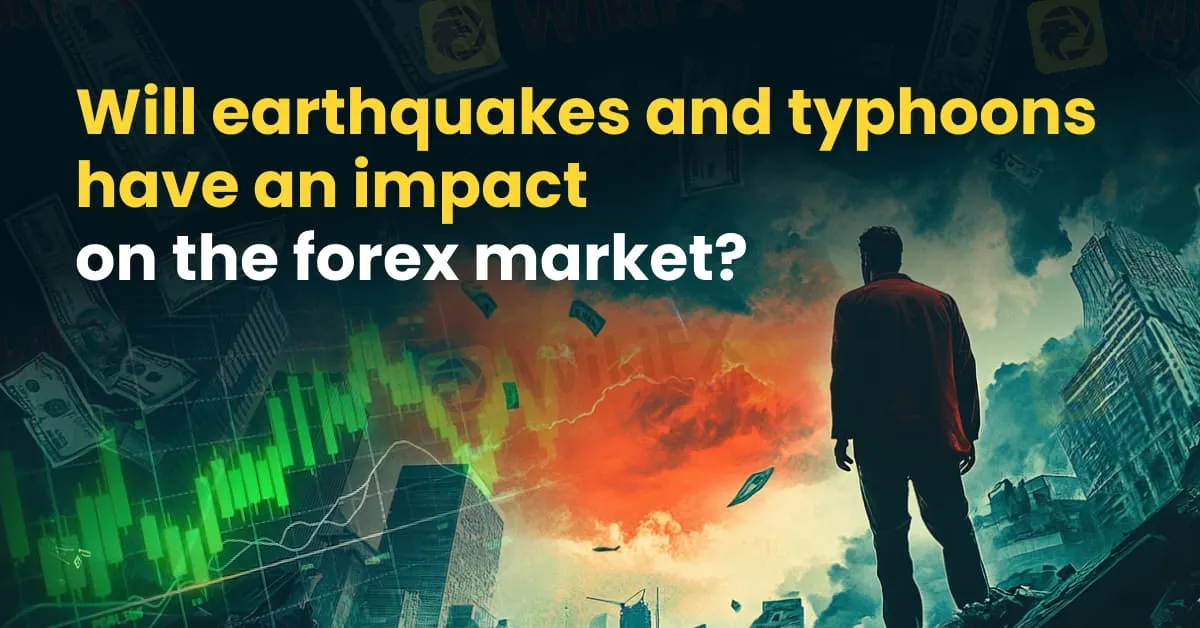简体中文
繁體中文
English
Pусский
日本語
ภาษาไทย
Tiếng Việt
Bahasa Indonesia
Español
हिन्दी
Filippiiniläinen
Français
Deutsch
Português
Türkçe
한국어
العربية
Will natural disasters have an impact on the forex market?
Abstract:The forex market is known for its rapid responses to global events, but the influence of natural disasters, such as earthquakes and typhoons, can be less straightforward. While headlines may scream about catastrophic damage and economic disruption, the long-term effects on currency values often depend on a blend of immediate shock and underlying economic fundamentals.

The forex market is known for its rapid responses to global events, but the influence of natural disasters, such as earthquakes and typhoons, can be less straightforward. While headlines may scream about catastrophic damage and economic disruption, the long-term effects on currency values often depend on a blend of immediate shock and underlying economic fundamentals.
Forex Market Sensitivity to Global Shocks
At its core, the forex market is driven by investor expectations about economic performance. Global events—from political shifts to natural disasters—can introduce volatility. However, seasoned traders know that the market is forward-looking. A brief spike in volatility is common, but currencies eventually gravitate toward values that reflect long-term economic strength and policy direction. As noted by Investopedia, “global events can immediately affect exchange rates and currency values due to the interconnectedness of the forex marketplace.”
Earthquakes vs. Typhoons: Different Disasters, Different Impacts
Earthquakes
Earthquakes tend to have an immediate, dramatic effect because they often strike without warning and can severely damage critical infrastructure. A historical example is Japan‘s 2011 Tōhoku earthquake and tsunami. Despite the initial plunge in market confidence, Japan’s currency—while volatile—recovered as investors focused on the countrys robust economic fundamentals and reconstruction efforts. This case shows that even catastrophic events might only lead to short-term market disruptions if the long-term outlook remains positive
Typhoons
Typhoons, on the other hand, are usually forecasted days in advance. This lead time often allows governments and businesses to activate emergency measures and secure insurance payouts, which can mitigate the immediate economic shock. In regions prone to typhoons, such as parts of Southeast Asia, the impact on the forex market is typically localized. Although there might be temporary shifts—especially in sectors like agriculture and tourism—the overall currency value is less likely to suffer a prolonged decline, as reconstruction and relief measures quickly restore market confidence
Why the Forex Market Often Braces for the Storm
A key factor in the forex markets resilience is its forward-looking nature. Traders and investors focus on long-term fundamentals like GDP growth, monetary policy, and overall economic health. Even when a disaster introduces short-term uncertainty, if the underlying economic framework remains strong, the currency is likely to recover. Moreover, global financial networks—ranging from insurance mechanisms to international aid—help cushion the economic blow, limiting the sustained impact on exchange rates.
Strategic Considerations for Traders
For forex traders, understanding the nuanced impact of natural disasters is essential. Here are some strategies to consider:
- Risk Management: Use stop-loss orders and diversify exposure to limit potential losses during volatile periods.
- Hedging: Consider instruments like options or forward contracts to mitigate short-term risk.
- Stay Informed: Monitor both the immediate news and longer-term economic indicators, ensuring that decisions are guided by the broader economic outlook rather than panic.
Conclusion
While earthquakes and typhoons can induce short-term volatility in the forex market, their long-term impact is often moderated by the markets reliance on economic fundamentals and its forward-looking nature. Even in the face of dramatic natural events, well-prepared economies and effective risk management strategies can help stabilize currency values over time.

Disclaimer:
The views in this article only represent the author's personal views, and do not constitute investment advice on this platform. This platform does not guarantee the accuracy, completeness and timeliness of the information in the article, and will not be liable for any loss caused by the use of or reliance on the information in the article.
Read more

RM1.29 Million Lost in ‘C Baird VIP’ WhatsApp Scam
A 43-year-old company auditor and subcontractor in Malaysia became the latest victim of an elaborate investment scam after losing RM1.29 million to a fraudulent scheme promoted via WhatsApp.

U.S. March ISM Manufacturing PMI Released
The U.S. March ISM Manufacturing PMI data shows that manufacturing has contracted for the first time, and investors should pay attention to future changes and impacts on the sector.

Breaking News! Forex Inflows Surge to $17 Billion
Nigeria's foreign exchange inflows saw a significant increase in the fourth quarter of 2024, reaching $17.39 billion. This growth reflects strong foreign investments and export revenues, bringing new confidence to the market.

April Fool's Day Scam Prevention Experience Collection
Share your “Forex Fraud Prevention Experience”, win WikiFX points and gold rewards!
WikiFX Broker
Latest News
Exposing the Top 5 Scam Brokers of March 2025: A Closer Look by WikiFX
Gold Prices Climb Again – Have Investors Seized the Opportunity?
Webull Launches SMSF Investment Platform with Zero Fees
Australian Regulator Warns of Money Laundering and Fraud Risks in Crypto ATMs
FCA Warns Against 10 Unlicensed or Clone Firms
CySEC Warns Against 14 Unlicensed Investment Websites
Top Currency Pairs to Watch for Profit This Week - March 31, 2025
Will natural disasters have an impact on the forex market?
Philippines Deports 29 Indonesians Linked to Online Scam Syndicate in Manila
The Withdrawal Trap: How Scam Brokers Lure Victims into Paying More
Currency Calculator


